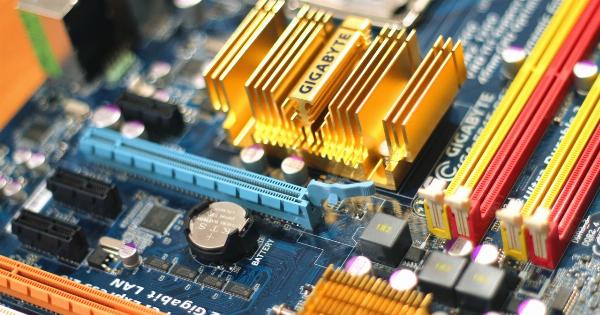As we age, our memories may start to fade, and we often experience difficulties in recall and cognitive function. However, recent research suggests that playing games can have a positive impact on our brain health and help fight aging memories.
Engaging in various forms of gameplay can enhance memory, cognitive abilities, and delay the onset of age-related memory decline.
The Role of Games in Memory Enhancement
Games offer a stimulating and interactive environment that can boost memory function in older adults.
Whether it’s solving puzzles, playing strategy games, or engaging in memory-focused activities, these games require mental effort, concentration, and the ability to remember and recall information. Regularly challenging our brains through games strengthens neural connections, improves memory storage, and enhances cognitive skills.
Benefits of Playing Games for Memory
Playing games can have a range of benefits for memory and overall brain health:.
- Improved Attention and Focus: Games demand our attention, requiring us to concentrate and focus. This can enhance our ability to pay attention to details and retain important information.
- Enhanced Problem-Solving Skills: Many games involve problem-solving and critical thinking. Regularly engaging in these activities can strengthen our ability to analyze situations and find solutions, which translates into improved memory function.
- Increased Mental Stimulation: Games provide mental stimulation, which encourages the growth of new brain cells and neural connections. This can improve overall cognitive function and memory performance.
- Reduced Stress and Anxiety: Engaging in enjoyable gameplay can help reduce stress and anxiety, which are known contributors to memory problems. By promoting relaxation and positive emotions, games indirectly support better memory retention.
- Improved Multi-Tasking Abilities: Many games require us to juggle multiple tasks simultaneously. This enhances our ability to divide attention and switch between different tasks, which can positively impact memory processing.
- Delayed Onset of Age-Related Memory Decline: Regular engagement in memory-enhancing games has been linked to a delay in the onset of age-related memory decline. By keeping our brains active and challenged, we can maintain our cognitive abilities and memory function for longer.
Types of Games Beneficial for Memory
While any mentally stimulating activity can contribute to memory enhancement, certain types of games have shown particularly promising results:.
Puzzle Games
Puzzle games, such as crosswords, jigsaw puzzles, and Sudoku, require logical thinking, problem-solving, and memory recall. These games engage different areas of the brain and can improve memory retention and processing.
Strategy Games
Strategy games, like chess or strategic video games, demand planning, decision-making, and memory of past moves. Playing strategy games exercises the brain, enhances concentration, and strengthens memory abilities.
Memory Games
Memory games, including card matching or Simon Says, directly target memory retention and recall. Regularly engaging in memory-focused activities can boost short-term and long-term memory functions.
Video Games
While video games have received mixed reviews regarding their impact on memory, certain video games that incorporate problem-solving, strategy, and memory challenges can provide similar benefits to traditional games.
Selecting video games with a focus on memory enhancement can be an enjoyable way to improve cognitive abilities.
Integrating Games into Daily Routine
To harness the benefits of games for memory enhancement, it’s essential to incorporate them into our daily routine:.
- Schedule Game Time: Set aside specific time each day or week for gameplay. Consistency is key to maintaining the positive effects on memory.
- Engage in Varied Games: Try different types of games to provide a well-rounded mental workout. Combination of puzzle games, strategy games, and memory games can target various cognitive skills.
- Play with Others: Engaging in multiplayer games or participating in game clubs can add a social component to gameplay. Social interactions have additional cognitive benefits and can help strengthen memory through shared experiences.
- Utilize Digital Platforms: While physical games have their advantages, digital platforms can provide a vast array of memory-enhancing games. Many mobile apps and online platforms offer a wide selection of brain-training and memory games.
- Make it Challenging: Ensure the games you choose provide an appropriate level of challenge. Striking a balance between difficulty and enjoyment is crucial to sustain interest and maximize memory benefits.
Conclusion
Playing games offers a fun and effective way to fight aging memories. From enhancing attention and problem-solving skills to reducing stress and anxiety, games play a significant role in improving memory and cognitive function.
By incorporating various types of games into our daily routine and challenging our brains regularly, we can delay the onset of age-related memory decline and keep our minds sharp. So, let’s embrace the joy of gameplay and make it a priority in our lives.






























